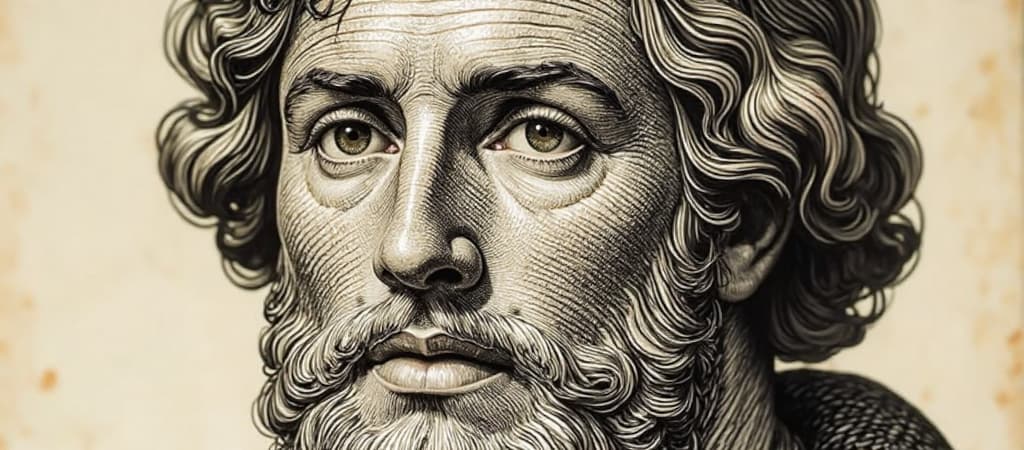Five minds. One legacy. These are the thinkers who didn’t just crunch numbers — they cracked the code behind reality itself.
#1 Carl Friedrich Gauss
By the age of three, Carl Friedrich Gauss was correcting his father’s math. By his teens, he was reshaping geometry. At 19, he cracked century-old conjectures and laid the foundation of modern number theory. So you know, his Disquisitiones Arithmeticae, written at 24, is still considered one of the greatest books in pure mathematics. Unlike some thinkers who made their mark through volume, Gauss was about precision. He proved fewer theorems — but each one hit like a lightning bolt. He gave us the first rigorous proofs of prime factorization and the fundamental theorem of algebra, and revolutionized complex numbers and modular arithmetic. Beyond math, he predicted the orbit of a missing asteroid when no one else could, designed surveying instruments, co-invented the telegraph, and quietly discovered non-Euclidean geometry before the rest of the world caught on. He even hinted at curved space long before Einstein. Gauss rarely published everything he discovered — he preferred depth over fame — but his fingerprints are on almost every field in modern mathematics. To many, he wasn’t just the “Prince of Mathematics”, he was its quiet king.

#2 Leonhard Euler
Leonhard Euler changed math forever. As the most prolific mathematician ever, he published more than 800 works that built the groundwork for number theory, graph theory, topology, mechanics, and modern notation. Euler popularized symbols we still use today, including e, i, π, and the summation sign Σ. His equation eiπ + 1 = 0 is often called the most beautiful formula in mathematics.
Euler solved some of the most famous problems of his day, including the Basel problem, and proved deep theorems in areas ranging from prime numbers to polyhedra. He pioneered concepts like the Euler characteristic in topology and helped launch graph theory by solving the Königsberg bridge problem.
Even blindness couldn’t slow him down — in his later years, Euler kept on working. He saw mathematics as a unifying language, and his clarity of thought made him a teacher across centuries. While others like Gauss may have gone deeper, no one has shaped more of mathematics than Euler. Laplace once said, “Read Euler, read Euler, he is the master of us all.”
#3 Terence Tao
Terence Tao, an Australian of Chinese heritage now living in the U.S., is often called the “Mozart of Math”. He won the Fields Medal in 2006 and is widely regarded as one of the greatest living mathematicians. Among his many breakthroughs, one of the most striking was made with fellow mathematician Ben Green: together, they proved that there are sequences of prime numbers of any length, evenly spaced. That means for any number — five, ten, twenty — you can find that many prime numbers in a row, all with the same gap between them. For instance, 3, 7, 11 is a three-prime sequence spaced by four; 11, 17, 23, 29 is a four-prime sequence spaced by six. The theory proves these kinds of sequences go on forever, even if we haven’t found a really long one yet — the longest known so far has just 25 primes. But by that point, each number is over 18 digits long, which makes searching for them incredibly difficult. Tao’s work opened up new doors in number theory, showing how deep structure exists even in the randomness of the primes.
#4 Isaac Newton

Newton’s genius went far beyond physics — he was also a master mathematician, astronomer, and creative pioneer. He invented calculus, explained the motion of planets, and proved that gravity on Earth and in space is the same force. He designed reflecting telescopes, solved impossible problems overnight, and explored ancient texts for hidden knowledge. His ability to connect ideas across disciplines was exceptional. Though he humbly said he was “standing on the shoulders of giants”, few have stood taller than Newton.
#5 Pythagoras
Pythagoras wasn’t just the man behind the famous triangle formula we all learned in school — he was also a philosopher, a mystic, and perhaps one of history’s most misunderstood figures. While he’s credited with shaping early mathematics and influencing thinkers like Plato and Euclid, much of what we “know” about him is second-hand and blurred by legend. His school, the Pythagoreans, treated math almost like a spiritual path — believing numbers held the secrets to the universe. They explored everything from musical harmony to astronomy, and even practiced an early kind of gender equality, with women like Theano playing a key role. Some say Pythagoras discovered the musical scale, others claim he invented a wine cup that punishes greed. What’s clear is that his ideas sparked a wave of curiosity and discovery that lasted centuries. Even though many of his so-called discoveries existed long before him — like the Pythagorean Theorem in ancient Babylon — he and his students helped shape math into something more than numbers: a way to understand the world.

